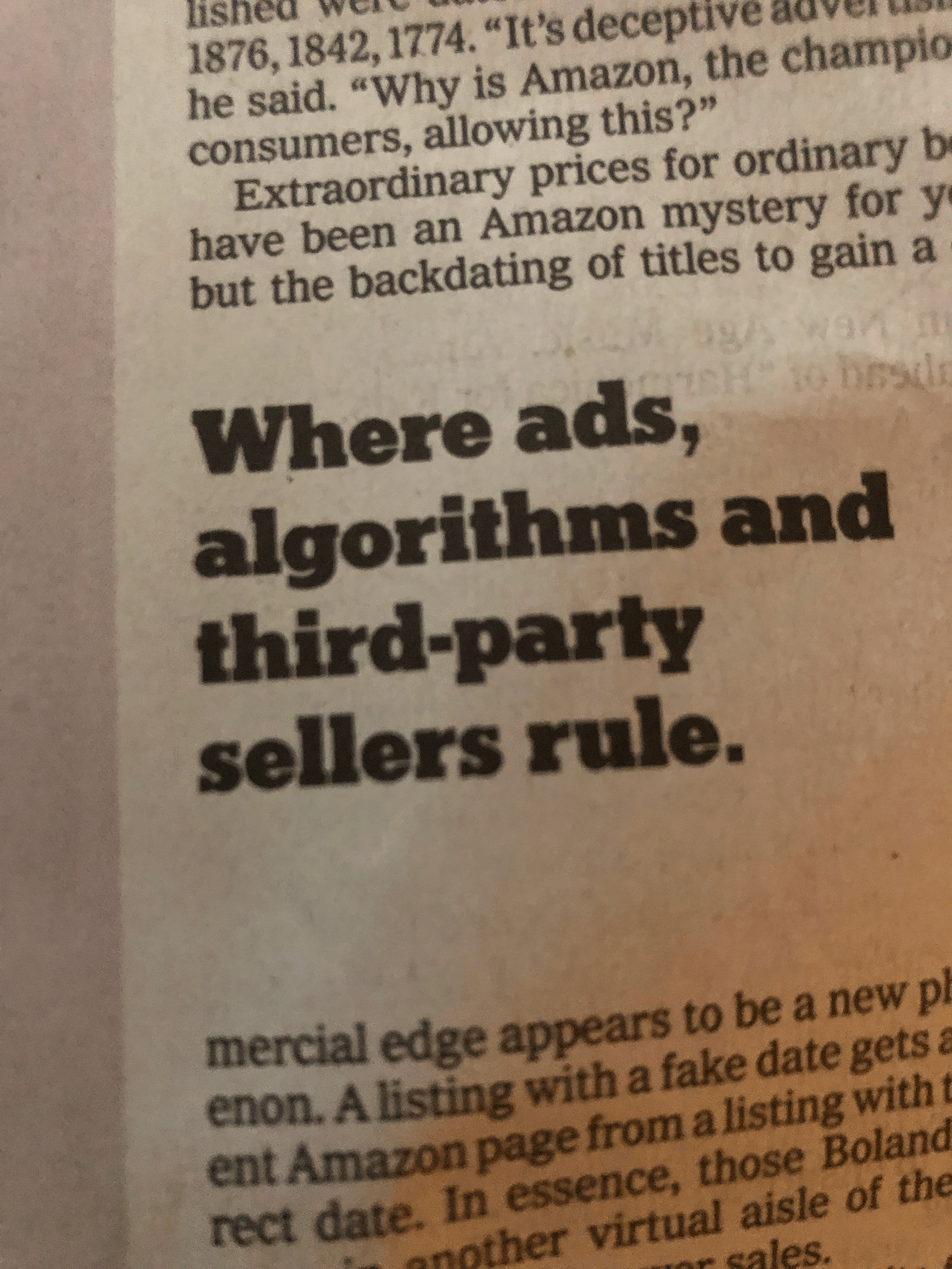What Happened to Amazon’s Bookstore?
Let’s see…what do we add to the conversation at this point? We already know how Amazon is not just a bookstore. (Do young’uns even remember that initial iteration of Bezos’ business model?) And we know about the abundance of third-party sellers on Amazon. So what’s Amazon’s relationship to books now?
This article was in Sunday’s NYT. Author John C. Boland used to love Amazon; he’s sold his books there since 2009. Amazon has a bunch of built-in, à la carte services for authors who self-publish, including printing, billing, and shipping. However, a few months ago Boland noticed his novel Hominid for sale for $907 (!) via a retailer called Sandy Dunes Surplus. (The description also said the book was published in 1602, which is weird since John C. Boland is most definitely alive in 2021.) So now he’s filed a lawsuit.
To many, Amazon is “suffering from the Wild West atmosphere.” Here’s what irks me about that: I’m not much of a shopper, but I’d rather spend my time (virtual or in-person) in a “store” that is well-designed and intuitive. Even if you know you’re being snookered on some level, good design + curated inventory make a difference, right?
And Amazon is a total mess…a place where, according to this article, “ads, algorithms, and third-party sellers rule.” It’s a place where you might accidentally purchase a counterfeit digital copy of The House of the Seven Gables because you need it lickety-split. (Um, that was me; I’ll put that 2019 post in my stories.)
If you’re buying books and have just a wee bit of money and time to spare, try:
* Bookshop.org: No, I don’t get my books the next day, but usually in about 3. You can purchase e-books here as well.
* Your local bookstore. Find one via IndieBound.org;
* For audiobooks, Libro.fm.
The shopping experience is A+.
This way, you can maybe save Amazon for people like:
* John C. Boland and other independent authors who need a platform;
* Customers who are on a tight budget (one of Amazon’s perks, of course, is its pricing).
Amazon smartly started out as a “bookseller.” What would happen if that aspect of its portfolio really started dwindling?
originally published on instagram

